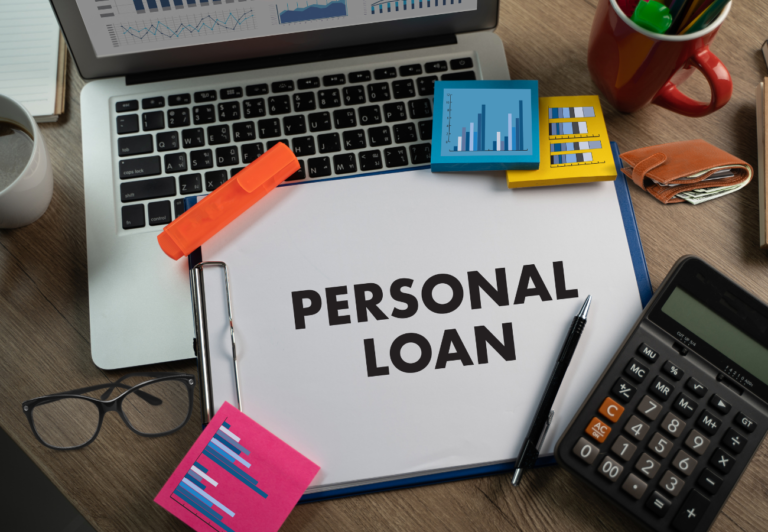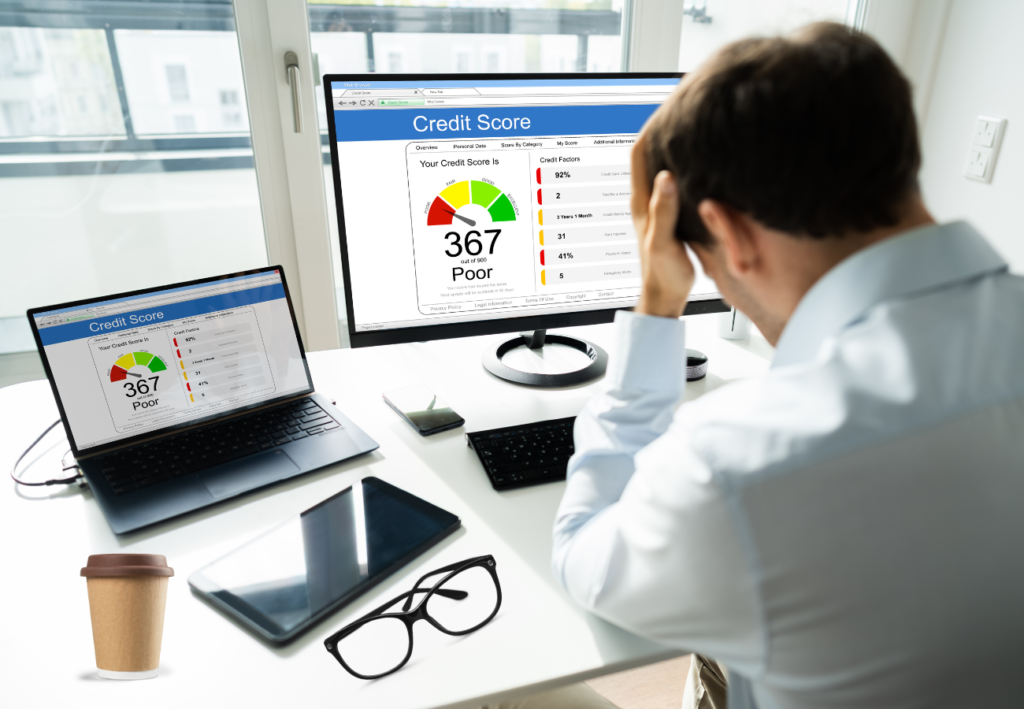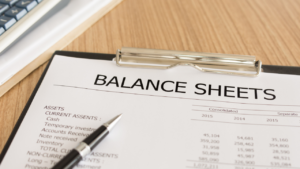Welcome to our website

Personal Loans for Low Credit Scores: A Comprehensive Guide to Securing Approval
Securing a personal loan with a low credit score can feel like an overwhelming task, but with the right information and strategic approach, it is achievable. Though low credit scores often come with higher interest rates and more restrictive borrowing terms, you can improve your chances of approval by carefully selecting lenders, taking steps to improve your credit profile, and exploring alternative financing options. Not only can you get the loan you need, but you can also use it as an opportunity to rebuild your credit over time.
In-depth discussions of the fundamentals of securing personal loans for low-credit borrowers will be included in this comprehensive guide, along with practical advice on how to get approved, a list of the top lenders available, and alternative financing options that may be more appropriate for people with challenging credit histories.
What Are Personal Loans and How Do They Work?

Understanding Personal Loans
A personal loan is a financial product that allows individuals to borrow a lump sum and repay it in fixed monthly installments over a predetermined period. These loans are commonly used for significant expenses, including medical bills, home improvements, consolidating high-interest debt, or covering unexpected emergencies.
Types of Personal Loans
Personal loans can be categorized into two primary types: secured and unsecured. Secured loans require collateral, meaning the borrower must provide an asset—such as a car, house, or savings account—as security in case of default. Unsecured loans, on the other hand, do not require collateral. Instead, they rely on the borrower’s credit score and financial history to determine eligibility and loan terms.
Key Loan Components
Several key factors determine the structure of a personal loan:
- Loan Amount: The total sum of money borrowed.
- Interest Rate: The cost of borrowing, typically expressed as a percentage (APR) of the loan amount.
- Loan Term: The length of time over which the loan will be repaid, generally ranging from one to seven years.
- Monthly Payment: The fixed amount the borrower must pay each month to cover both the interest and principal.
The Challenges of Getting Personal Loans with Low Credit

Low Credit Scores and Lender Perception
When you have a low credit score—typically considered below 600—lenders perceive you as a higher-risk borrower. Credit scores reflect your history of managing debt and making payments, and a low score signals potential financial instability. Consequently, low-credit borrowers often face more stringent lending conditions designed to protect the lender from the increased risk.
Obstacles You Might Face
Here are some common obstacles faced by low-credit borrowers:
- Higher Interest Rates: To offset the risk, lenders typically charge higher APRs. This means that borrowers with low credit pay more in interest over the life of the loan, making the overall cost of the loan higher.
- Lower Loan Limits: Lenders may restrict the loan amount offered to low-credit borrowers. Smaller loan amounts help lenders minimize risk in case of default.
- Fewer Loan Options: Many traditional banks and financial institutions are reluctant to lend to individuals with low credit scores, leaving you with a narrower range of products and lenders to choose from.
How to Increase Your Chances of Approval with Low Credit
1. Review and Monitor Your Credit Report
Before applying for any loan, it’s essential to thoroughly review your credit report. Credit reports often contain inaccuracies, such as incorrect late payments or unverified debts, that can drag down your score unnecessarily. Federal law allows you to obtain a free credit report annually from the three major credit bureaus: Equifax, Experian, and TransUnion.

Actionable Tip:
If you find any discrepancies, dispute them immediately. Correcting these errors can quickly elevate your credit score, improving your chances of loan approval.
2. Apply with Lenders That Cater to Low Credit Borrowers
Certain lenders specialize in providing personal loans to individuals with low credit. These lenders, including credit unions, online platforms, and peer-to-peer networks, often have more flexible lending criteria compared to traditional banks.
Actionable Tip:
Use online comparison tools to research lenders that cater to low-credit borrowers. Many of these tools allow you to pre-qualify for loans without impacting your credit score, giving you an idea of potential rates and terms before committing.
3. Consider Adding a Co-Signer
A co-signer is someone who agrees to assume responsibility for the loan if you default. This individual’s creditworthiness can improve your chances of securing a loan and may even help you secure better terms, such as a lower interest rate.
Actionable Tip:
Choose a co-signer who has a solid credit history and can trust you to make timely payments. Make sure they fully understand the risks of co-signing, as missed payments can affect both your credit score and theirs.
4. Demonstrate Stable Income
Even with poor credit, providing evidence of a stable income can significantly boost your chances of loan approval. Lenders want to ensure that you have the financial capacity to repay the loan, so proof of reliable income is key.
Actionable Tip:
Compile documents like pay stubs, tax returns, and bank statements to demonstrate your financial stability. Being able to show a consistent history of earnings will reassure lenders of your ability to repay the loan.
5. Explore Secured Loan Options
If qualifying for an unsecured loan proves difficult, consider applying for a secured loan. By offering collateral, such as a vehicle or property, you reduce the lender’s risk and may qualify for more favorable loan terms.
Actionable Tip:
Carefully assess the risks before putting up collateral. Defaulting on the loan could result in the loss of your asset, so make sure you’re confident in your ability to make the payments.
6. Lower Your Debt-to-Income Ratio
Lenders evaluate your debt-to-income (DTI) ratio to determine how much of your income is being used to cover existing debts. A high DTI ratio signals that you may be overleveraged, making it harder to take on new debt responsibly.
Actionable Tip:
Work on paying down your existing debt before applying for a new loan. A lower DTI ratio will make you a more attractive borrower and may improve your loan terms.
7. Start Small and Build a Positive Payment History
If possible, start by applying for a smaller loan. Successfully repaying a smaller loan on time will demonstrate your financial responsibility and improve your credit score. This strategy can make it easier to qualify for larger loans in the future.
Actionable Tip:
Starting with a modest loan amount will help you build trust with the lender and strengthen your credit profile. Make all payments on time, as consistency is key to improving your credit.
Top Lenders for Personal Loans for Low Credit Scores
Here are some top lenders that specialize in working with borrowers who have less-than-perfect credit:
1. OneMain Financial
- Loan Amounts: $1,500 – $20,000
- APR: 18% – 35.99%
- Key Feature: Offers both secured and unsecured loans, and no minimum credit score is required.
2. Upstart
- Loan Amounts: $1,000 – $50,000
- APR: 6.70% – 35.99%
- Key Feature: Uses AI algorithms to assess more than just your credit score, including factors like education and employment history.
3. Avant
- Loan Amounts: $2,000 – $35,000
- APR: 9.95% – 35.99%
- Key Feature: Fast funding is available for individuals with credit scores as low as 580, with flexible repayment options.
4. LendingClub
- Loan Amounts: $1,000 – $40,000
- APR: 8.05% – 35.89%
- Key Feature: A peer-to-peer lending platform that provides a personalized approach for low-credit borrowers.
5. Credit Unions
- Key Feature: Local credit unions often offer personal loans with more favorable terms than traditional banks, even for borrowers with low credit scores. Membership is typically required, but credit unions are more community-focused and often offer flexible terms.
Alternatives to Personal Loans for Low Credit Scores
If obtaining a traditional personal loan proves difficult, here are several alternative options worth considering:
1. Credit Builder Loans
A credit builder loan is designed specifically to help you improve your credit score. The lender holds the loan amount in a secured account while you make monthly payments. Once the loan is paid off, you receive the funds, and the positive payment history is reported to credit bureaus, boosting your credit score.
2. Payday Alternative Loans (PALs)
Offered by some credit unions, PALs are small-dollar, short-term loans intended to be a safer alternative to high-interest payday loans. PALs typically offer lower APRs and more manageable repayment terms, making them a viable option for borrowers with low credit.
3. Debt Management Plans (DMPs)
For those struggling with overwhelming debt, a Debt Management Plan (DMP) through a nonprofit credit counseling agency could be a good solution. The agency works with your creditors to reduce interest rates and consolidate payments into a single monthly payment, helping you get back on track financially without taking on new loans.
Conclusion
Securing a personal loan with a low credit score presents challenges, but with the right approach and preparation, it’s far from impossible. By understanding how lenders assess risk, you can take specific steps to improve your chances of approval. Whether it’s correcting errors on your credit report, applying to the right lenders, or using a co-signer, there are numerous ways to work around low credit challenges.
Additionally, exploring alternative options like secured loans, credit builder loans, or debt management plans can open up opportunities to improve your financial standing while working towards future financial goals. It’s also crucial to use any loan responsibly—making on-time payments will not only protect your financial health but also serve as an opportunity to rebuild your credit over time.
Remember, while low credit can limit your options, it doesn’t define your financial future. Strategic actions can put you on a path to better credit and more favorable financial opportunities down the road.
Key Takeaways:
- Research and Preparation: Start by reviewing your credit report for errors, and explore lenders that cater to low-credit borrowers.
- Use Resources Wisely: Consider using a co-signer, applying for a smaller loan initially, or offering collateral to improve your chances of approval.
- Explore Alternatives: If a personal loan isn’t feasible, credit builder loans, payday alternative loans, or debt management plans can be great options.
- Rebuild Credit: Every loan you take is an opportunity to build credit. Prioritize making payments on time to strengthen your credit score and qualify for better rates in the future.
Frequently Asked Questions
What is the Easiest Loan to Get with Bad Credit?
The easiest loans to get with bad credit are often payday loans and secured personal loans. Payday loans have minimal credit requirements, but they come with high fees and short repayment terms. Secured loans, which require collateral like a car or savings account, are also easier to obtain as the collateral reduces the lender’s risk.
What is the Easiest Loan to Get Immediately?
Payday loans and online personal loans offer quick access to funds, sometimes within 24 hours. However, these loans tend to have higher fees and interest rates. If you need quick access to funds, look for reputable online lenders with same-day or next-day approval options.
What Credit Score Do I Need for a $2,000 Loan?
The required credit score for a $2,000 loan varies by lender, but generally, you’ll need at least a 600 credit score for favorable terms. You may still qualify with bad credit but could face higher interest rates and shorter repayment terms.
What is the Minimum Credit Score for a Personal Loan?
The minimum credit score for a personal loan is typically around 580-600 for many lenders, though some offer loans to individuals with lower scores. Keep in mind, however, that lower credit scores generally lead to higher interest rates and stricter loan terms.
By following the advice in this guide, you can turn a personal loan into a valuable financial tool that helps you rebuild your credit and set the stage for a more secure financial future!



